Our Classes: Learning on Robots & Learning Through Robots
- STEAM Curriculum for K-12
- After School Enrichment
- Seasonal Camps (Summer / Winter)
- Birthday Party
- Learning Center
Project Sample Videos
Project Sample Pictures
-
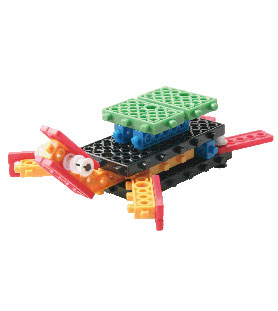 Robot Project 1 Turtle
Robot Project 1 Turtle -
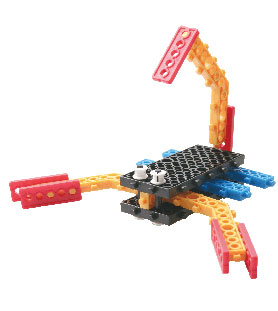 Robot Project 2 Scorpion
Robot Project 2 Scorpion -
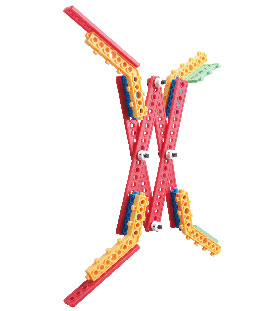 Robot Project 3 Inspector Gadget's Arm
Robot Project 3 Inspector Gadget's Arm -
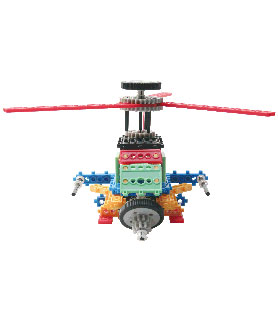 Robot Project 4 Apache Helicopter
Robot Project 4 Apache Helicopter -
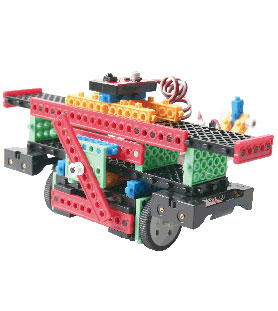 Robot Project 5 Air-Sing-Sing
Robot Project 5 Air-Sing-Sing -
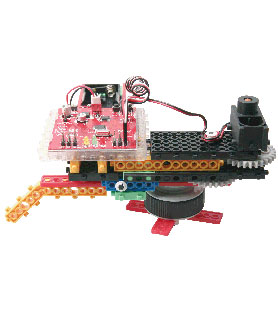 Robot Project 6 Power Spin
Robot Project 6 Power Spin -
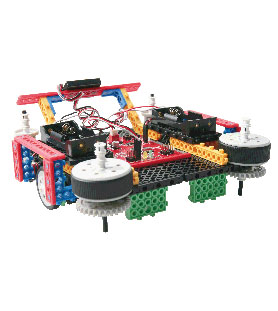 Robot Project 7 Battle Bumper Car
Robot Project 7 Battle Bumper Car -
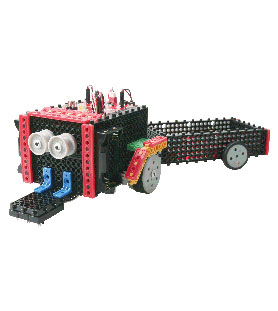 Robot Project 8 Thomas Train (Line Tracer)
Robot Project 8 Thomas Train (Line Tracer) -
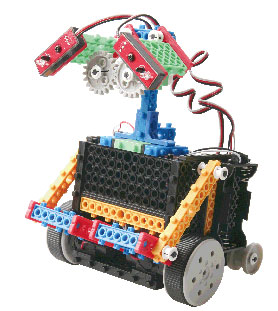 Robot Project 9 Huna-E (Avoider)
Robot Project 9 Huna-E (Avoider) -
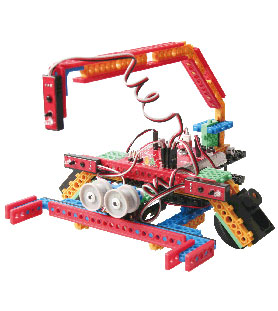 Robot Project 10 Scorpion Robot (Stalker)
Robot Project 10 Scorpion Robot (Stalker) -
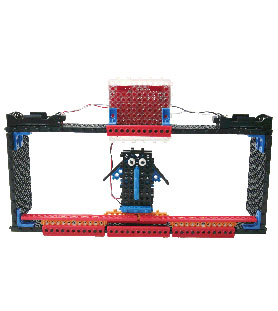 Robot Project 11 Penguin Show
Robot Project 11 Penguin Show -
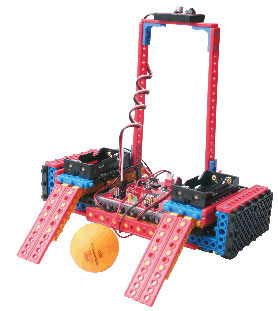 Robot Project 12 Soccer Robot
Robot Project 12 Soccer Robot
-Learn basic robot building skills, using a variety of block shapes, control boards, IR-sensors and motors.
Month |
Week |
Subject |
STUDY CONTENTS |
1 |
1 |
Definition of Robot |
1) What is a robot? |
|
2 |
Identify Objects and its Expression |
1) Creative thinking |
|
3 |
Robot Main Board-Magic Box |
1) Machine Foundations-I: motor, gear, gear train, gear ratio, crank |
|
4 |
Science Principle Applied in our Life |
1) Machine Foundations-II: link structure, friction, power transmission |
General Information
Educational Development Program
• The whole program focuses on the development of scientific, robotic and other technological skills.
• Development of basic scientific knowledge and creative thinking skills, to solve complex problems and program development to raise problem solution-orientated abilities and to create novel solutions.
Training Features
• Challenges and promotes problem-solving skills and improve concentration.
• Improve leadership and communication skills through small group activities.
• Educational linked to kindergarten and elementary school science curriculum.
• Under the guidance of teacher, the goal will be achieved through self-assembly to promote a good Learning environment.
• Enrolled in grades K-12
*** Every student would have to be motivated and possess enough maturity to stay focused during robotics class activities in order to register for this class.
Location
• at Your School Site or at Our Learning Center or at Your Home
*** An open house or weekend class might be available at our learning center upon request.
Robot Edutainment Class Schedule Options
• 10-12 Sessions (1.5-2 Hrs. per Session)
Level I (for 10-12 weeks) |
Option 1 (Recommended): Once a week for 2 hours per session |
Level II (for 10-12 weeks) |
Option 1 (Recommended): Once a week for 2 hours per session |
Level III (for 10-12 weeks) |
Option 1 (Recommended): Once a week for 2 hours per session |
Level IV (for 10-12 weeks) |
Option 1 (Recommended): Once a week for 2 hours per session |
Level V (for 10-12 weeks) |
Option 1 (Recommended): Once a week for 2 hours per session |